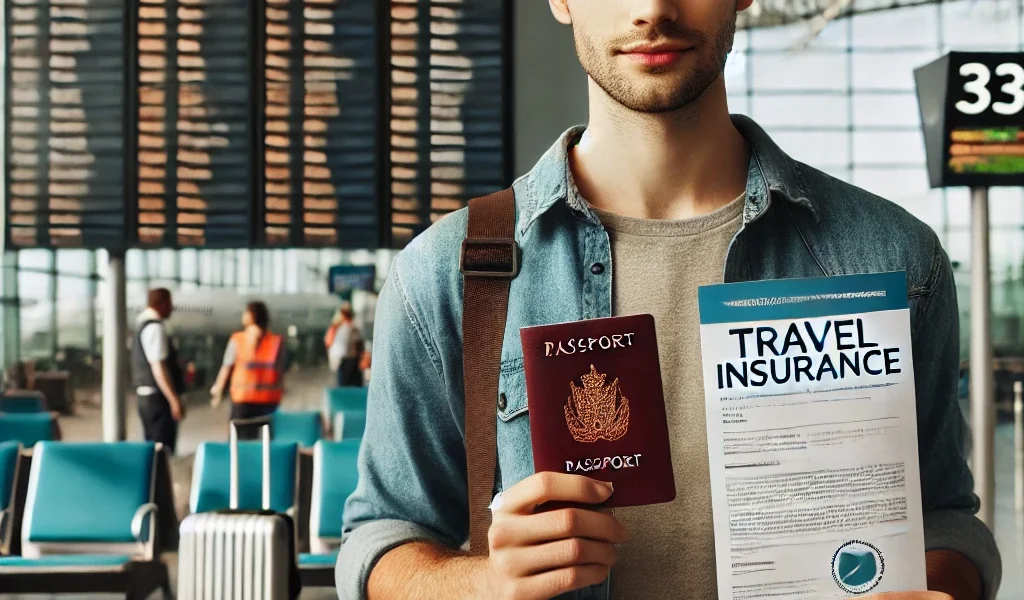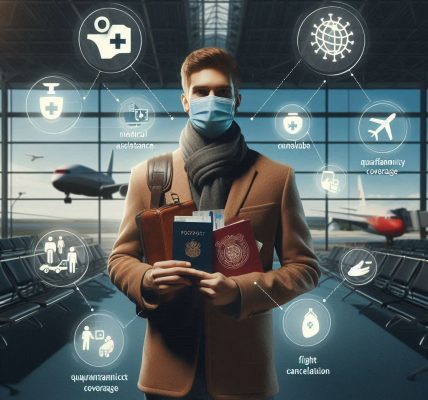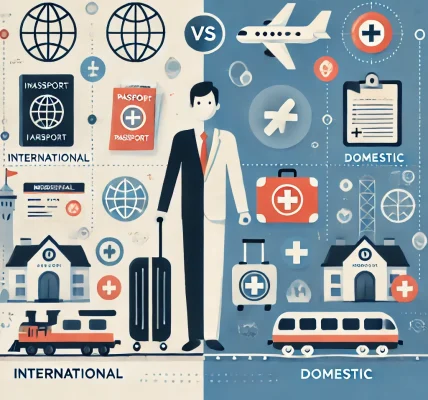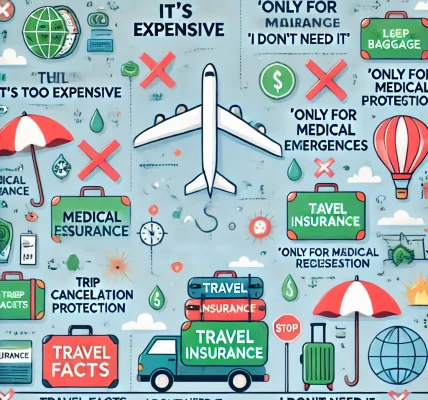Introduction
Traveling internationally is an exciting experience, whether for leisure, business, or education. However, unforeseen circumstances such as medical emergencies, flight cancellations, lost baggage, or legal issues can turn your dream trip into a nightmare. This is where travel insurance plays a crucial role.
In this DIY guide, we will explore why travel insurance is a must-have, what it covers, how to choose the best plan, and how to make claims hassle-free. Whether you are a first-time traveler or a frequent flyer, this guide will help you make an informed decision.
1. What is Travel Insurance?
Travel insurance is a financial safety net designed to protect travelers from unexpected situations while they are away from home. It provides coverage for medical expenses, trip cancellations, lost baggage, emergency evacuations, and other unforeseen incidents that may disrupt travel plans.
Most countries recommend or require travel insurance, especially for visa applications. For instance, Schengen visa applicants must have travel insurance with a minimum coverage of €30,000 for medical expenses.
2. Why is Travel Insurance a Must-Have for International Trips?
Many travelers assume that they won’t need insurance, but here are some compelling reasons why travel insurance is essential for international travel:
a) Medical Emergencies & Hospitalization
- Medical costs abroad can be extremely expensive. In countries like the USA, a simple hospital visit can cost thousands of dollars.
- Travel insurance covers hospitalization, doctor consultations, emergency surgeries, and ambulance services.
- Some plans also include COVID-19 coverage, which is essential in today’s travel scenario.
b) Trip Cancellations & Delays
- Unexpected cancellations due to illness, natural disasters, or airline strikes can result in non-refundable expenses.
- Travel insurance reimburses prepaid bookings for flights, hotels, and tour packages.
- It also covers delayed flights and missed connections due to unforeseen circumstances.
c) Lost or Delayed Baggage
- Airlines can lose or misplace luggage, causing inconvenience and financial loss.
- Travel insurance compensates for lost, stolen, or delayed baggage so that travelers can purchase essentials.
d) Emergency Evacuation & Repatriation
- In case of natural disasters, political unrest, or serious medical conditions, travel insurance covers the cost of evacuation.
- If a traveler passes away abroad, repatriation coverage ensures that their remains are transported back to their home country.
e) Personal Liability Coverage
- If a traveler causes accidental injury or property damage to someone else, travel insurance covers legal expenses and compensation.
- This is especially important for adventure travelers, business professionals, and students abroad.
3. What Does Travel Insurance Cover?
The coverage depends on the policy and provider, but most standard travel insurance plans include:
| Coverage Type | What It Covers |
|---|---|
| Medical Expenses | Doctor visits, hospital stays, emergency treatments |
| Trip Cancellation | Reimbursement for non-refundable bookings |
| Trip Interruption | Compensation if you need to return home early |
| Lost/Damaged Luggage | Coverage for baggage loss, theft, or damage |
| Flight Delays & Missed Connections | Compensation for additional accommodation and transport expenses |
| Personal Liability | Coverage for legal expenses in case of accidental damage or injury |
| Emergency Evacuation | Costs of medical evacuation due to serious illness or disasters |
| Repatriation of Remains | Transportation of remains in case of death abroad |
Always read the policy terms and exclusions before purchasing travel insurance to ensure you get the right coverage.
4. How to Choose the Right Travel Insurance?
Selecting the best travel insurance can be confusing. Here’s a step-by-step guide:
Step 1: Assess Your Needs
- Are you traveling for business, leisure, adventure sports, or study?
- Do you need medical coverage, trip cancellation protection, or baggage insurance?
Step 2: Compare Different Plans
- Use online comparison tools to check coverage, prices, and reviews.
- Look for deductibles, claim limits, and exclusions in each policy.
Step 3: Check the Policy Exclusions
- Most policies do not cover pre-existing medical conditions, extreme sports, or reckless behavior.
- Read the fine print carefully to avoid claim rejection later.
Step 4: Choose a Reputable Provider
- Buy from trusted insurance companies with good customer service and claim settlement ratios.
5. DIY Guide: How to Buy and Use Travel Insurance?
a) Buying Travel Insurance
- Decide your coverage (Medical, trip cancellation, baggage loss, etc.).
- Compare plans online using aggregators.
- Read the policy terms and check for exclusions.
- Purchase online and keep a digital copy of the policy.
b) Making a Claim
If something goes wrong during your trip:
- Contact your insurer immediately and report the incident.
- Provide necessary documents (medical bills, police reports, flight details).
- Fill out the claim form and submit it online or via email.
- Follow up until the claim is processed.
Pro Tip: Keep all receipts, invoices, and reports as proof for smooth claim processing.
6. Common Travel Insurance Mistakes to Avoid
- Not reading the policy terms – Always check exclusions before buying.
- Buying the cheapest policy – Low-cost insurance may not provide sufficient coverage.
- Ignoring pre-existing conditions – Declare any medical issues beforehand to avoid claim rejection.
- Forgetting to carry policy details – Keep a printed and digital copy of your insurance documents.
7. FAQs About Travel Insurance
Q1: Is travel insurance mandatory for international travel?
It depends on the destination. Some countries require proof of travel insurance for visa approval.
Q2: Can I buy travel insurance after booking my flight?
Yes, you can buy travel insurance anytime before departure. However, purchasing it early is recommended for trip cancellation benefits.
Q3: Does travel insurance cover adventure activities?
Some policies cover adventure sports, but high-risk activities may require additional coverage.
Q4: What should I do if I lose my passport abroad?
Your travel insurance may cover the costs of passport replacement. Contact the nearest embassy and your insurer immediately.
Conclusion
International travel comes with uncertainties, and travel insurance is your best safeguard against unexpected events. From medical emergencies to trip cancellations and lost baggage, a good policy ensures that your journey remains stress-free.




